 We all know that we should be using less plastic in order to create less plastic waste; in the past 13 years the world has made more plastic than it did in the previous half-century (University of Cambridge) with 350 million tonnes created every 12 months, 8 million of which is making its way into our oceans and causing irrevocable damage to sea creatures and the habitats in which they live.
We all know that we should be using less plastic in order to create less plastic waste; in the past 13 years the world has made more plastic than it did in the previous half-century (University of Cambridge) with 350 million tonnes created every 12 months, 8 million of which is making its way into our oceans and causing irrevocable damage to sea creatures and the habitats in which they live.
No matter if it’s taking our own bags at the supermarket, drinking from a reusable coffee cup or making our way down to a two-minute beach clean, we all need to do our bit as the cumulative impact of such small changes can be massive.
Here are five easy-to-do plastic-free changes you could make when cleaning your holiday letting property and reduce plastic waste.
Stop those plastic microfibres
Microfibres are tiny strands of plastic commonly found on clothes and bed linen that shed off synthetic fabrics like polyester, rayon and nylon. Scientists have discovered that they are one of the main causes of plastic waste pollution in the ocean.
The most common reason these fibres make their way into water streams and the ocean is of course, during the washing process. Solutions such as the Guppyfriend can stop these fibres from leaving the washing machine, considerably reducing the amount of plastic leaving your holiday home with minimal effort.
Reduce the number of disposable wipes and cloths
In order to reduce the number of disposable items you use during the cleaning process, consider using washable cotton cloths and flannels. You can even use old clothes such as t-shirts that would otherwise be thrown away!
This will ensure that you’re not chucking away a large amount of cleaning materials at the end of every changeover, while potentially saving a considerable amount of money.
Move to a natural loofah scrubber
Rather than spending hours and hard elbow grease scrubbing those pans with a scouring brush or wire wool, only to throw it straight into the bin once you’re done, consider using one of the growing number of biodegradable scrubbers on the market. Popping it in your compost is much more friendly for the environment!
Have you tried bicarbonate of soda?
Bicarbonate of soda is a powerful natural deodoriser and can be used to remove odours from fridges, carpets and upholstery throughout a holiday home.
For fridges, place a shallow bowl of bicarbonate of soda on the shelf and leave until the odour has been reduced or removed. When it comes to your sofas and carpets, sprinkle on the affected area and leave for a few hours before returning with the hoover!
The great thing about bicarbonate of soda? You can buy it in a cardboard box, so no need for any plastic at all!
Vinegar for window cleaning?
Whilst we might be more familiar with vinegar on our indulgent fish and chips, it can actually perform a number of useful purposes around our home. For example, white vinegar can be used for removing limescale from kettles – all you need to do is fill with a solution of one-part water to one-part white vinegar and leave overnight – return in the morning to find that the limescale can be remove easily. Just like bicarbonate of soda, it can also be purchased in glass bottles and is free from any plastic!
For more information on specialist insurance for your holiday home please give our experienced team a call on 01237 429444.


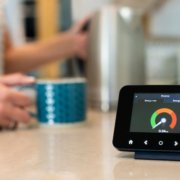
 What are Smart Meters and are there benefits of installing them in your holiday home? If there was a simple way for you to monitor, even reduce the gas and electricity bills in your
What are Smart Meters and are there benefits of installing them in your holiday home? If there was a simple way for you to monitor, even reduce the gas and electricity bills in your 
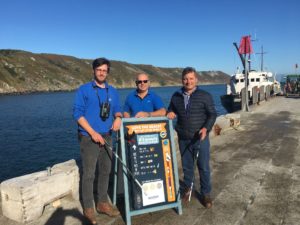

 Martin Dorey, founder of the #2minutebeachclean, said, “It is very special for us to have a presence on Lundy Island. It is a beautiful island that is well loved by many, me included! I have cleaned the beach there myself when I have visited and know that even marine reserves like Lundy need a little extra help clearing marine litter. We are so very grateful to our friends at Boshers for supporting our beach cleaning campaign, and for enabling us to enable Lundy’s visitors to do their bit to keep it pristine. Thanks also to the staff at Lundy for helping to make this happen. It’s brilliant!”
Martin Dorey, founder of the #2minutebeachclean, said, “It is very special for us to have a presence on Lundy Island. It is a beautiful island that is well loved by many, me included! I have cleaned the beach there myself when I have visited and know that even marine reserves like Lundy need a little extra help clearing marine litter. We are so very grateful to our friends at Boshers for supporting our beach cleaning campaign, and for enabling us to enable Lundy’s visitors to do their bit to keep it pristine. Thanks also to the staff at Lundy for helping to make this happen. It’s brilliant!”
 The BBC documentary series Blue Planet and several other high profile media campaigns have recently shed a considerable amount of focus onto the topic of single-use plastic and recycling.
The BBC documentary series Blue Planet and several other high profile media campaigns have recently shed a considerable amount of focus onto the topic of single-use plastic and recycling.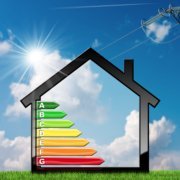
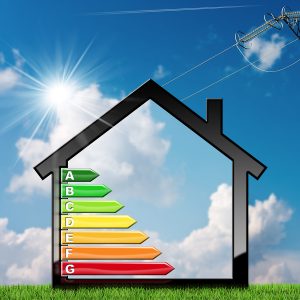
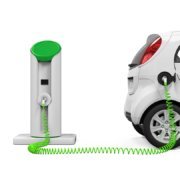
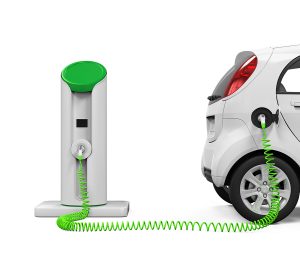 Have you considered how installing an electric vehicle charging point could help attract more guests? The government announced it would ban the sale of new (non-hybrid) petrol and diesel cars from 2040. Many felt that this was such a long time into the future that the likelihood of it altering car buying patterns in the mid to short term were relatively remote.
Have you considered how installing an electric vehicle charging point could help attract more guests? The government announced it would ban the sale of new (non-hybrid) petrol and diesel cars from 2040. Many felt that this was such a long time into the future that the likelihood of it altering car buying patterns in the mid to short term were relatively remote.
 We live in a society in which we are all growing more and more conscious of the world in which we live and the impact we make upon it. Recent news of motor manufacturers moving away from gas-guzzling cars towards cleaner electric vehicles are indicative of this change. Indeed there is a trend towards
We live in a society in which we are all growing more and more conscious of the world in which we live and the impact we make upon it. Recent news of motor manufacturers moving away from gas-guzzling cars towards cleaner electric vehicles are indicative of this change. Indeed there is a trend towards 
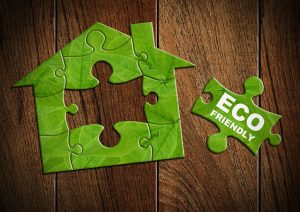
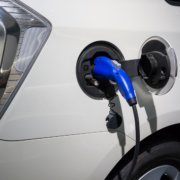


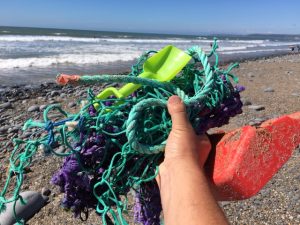 As specialists in
As specialists in